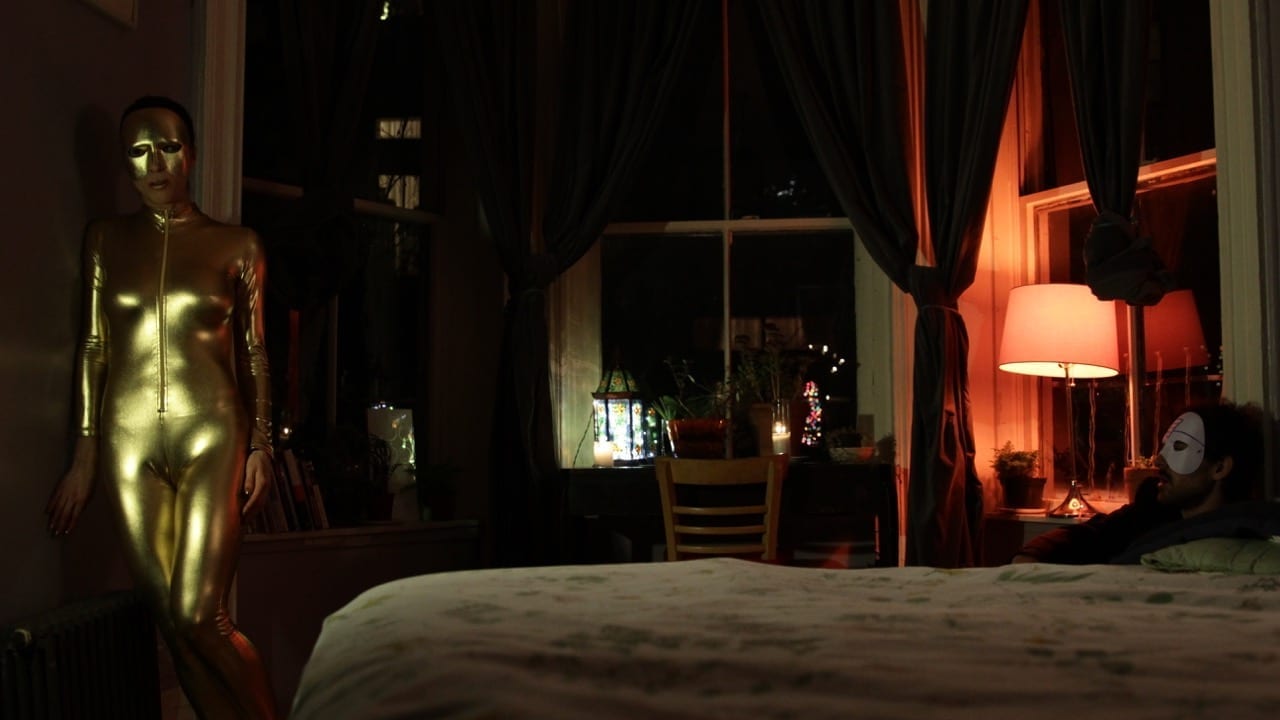The 2018 reincarnation of Origin’s 1st Irish Theatre Festival is a celebration of the old and the new. Each year, the festival – hosted by Origin Theater Company – brings in a varied collection of shows and productions from the Emerald Isle to the Big Apple, setting up shop in venues all over the city. The festival, self-styled as New York’s Annual Festival of Irish Culture, celebrates its 10th anniversary while simultaneously settling into a new month of the year, changing from its habitual warm September to brisk January. The productions feature everything from the ancient Celtic warrior Cú Chulainn to the stories of opioid addicts inspired by the epidemic currently sweeping the city and the country.
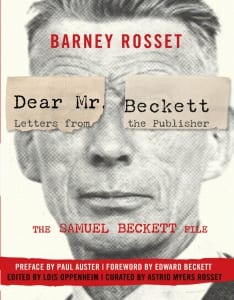 Something else exciting is simmering beneath the surface, however. Maybe it’s a movement, or maybe it’s simply of subconscious reflection of the times. But there’s no denying that women rule the stage – either in the spotlight or from behind the scenes – with this year’s festival. Take a look through the 1st Irish Festival’s playbill and you’ll be astounded by the number of shows that are female-directed, female-written, or female-led. It’s a refreshing lineup in a city whose theater industry finds it hard to make room for women, especially in directorial and creative positions – and the results of the festival don’t disappoint. Stories of women, told and delivered by women, seems to me to be an unofficial theme, and the plays of this year’s offering are all the stronger because of it.
Something else exciting is simmering beneath the surface, however. Maybe it’s a movement, or maybe it’s simply of subconscious reflection of the times. But there’s no denying that women rule the stage – either in the spotlight or from behind the scenes – with this year’s festival. Take a look through the 1st Irish Festival’s playbill and you’ll be astounded by the number of shows that are female-directed, female-written, or female-led. It’s a refreshing lineup in a city whose theater industry finds it hard to make room for women, especially in directorial and creative positions – and the results of the festival don’t disappoint. Stories of women, told and delivered by women, seems to me to be an unofficial theme, and the plays of this year’s offering are all the stronger because of it.
As it has in the past, the 1st Irish Theatre Festival offers a wide selection of plays – comedies, dramas, and everything in between, and all highly enjoyable. Party Face, written by Isobel Mahon and directed by Amanda Bearse, features an unthinkable get-together thrown by Mollie Mae, a Dublin woman recently released from a psychiatric ward due to a suicide attempt. The party is upended by her meddling mother Carmel, a glamorous socialite played by Hayley Mills who is too wrapped up in what people will think to come to terms with her daughter’s mental state. (She goes so far when Mollie Mae refuses to dress the way her mother wants her to, as to wipe the lipstick from Mollie Mae’s face and to apply some of her own.) Thrown into the mix are a collection of characters as improbable as the premise: aside from Mollie Mae and Carmel, we watch Mollie’s bitter sister Maeve, her friend from the psychiatric ward, Bernie, and Carmel’s unwelcome invitee and protégé, Chloe. In this entirely woman-driven play, chaos unfolds: pipes burst, insults are suggested in mutters and then hurled at full strength, and somehow by the second act everything is surreptitiously covered in Saran wrap by germaphobe Bernie.
Another drama-comedy put forth by the Irish Festival is Derek Murphy’s Dyin’ For It, a downright morbid but downright hilarious play. The show is put on at the Cell Theater in Chelsea, a venue recognizable enough to Chelsea passersby by its Falling Man sculpture outside. Dyin’ For It opens on the small Irish household of the Kelly family. Like Party Face, the focus is predominantly on the women of the household, though the men are constantly in the periphery. In a bed upstairs – always unseen by the audience – the patriarch of the house lays comatose and dying. Meanwhile, downstairs, his wife and daughters await his projected death date with plentiful swigs of wine, escalating arguments, and an increasing (and increasingly inappropriate) glee. What possible explanations could there be for a daughter with an eyepatch and a fierce hatred for both of her parents, or for a brother seemingly banished to America? All this and more is revealed through well-choreographed arguments and antics that range from light eye-gouging jokes to the serious abuse of a cabbage. Clearly, something is not right in this house, and the impending death of the head of the family brings all the bitterness and resentment to light. This play will certainly shock you, but it will make you chuckle, too.
Aside from plays, 1st Irish offers plenty of other theater-going experiences. One such experience is a film by CineMagic, an organization based in Ireland and the UK. CineMagic’s mission statement is not only to “use the magic of film and all forms of moving image to entertain, educate motivate and inspire young people,” but to create opportunities for children to follow their passions. Through programs that create events, film screening, and even send children to Los Angeles and New York, they are built around making dreams come true. And this mission is reflected in their film A Christmas Star, screened at the Scandinavia House and featuring such high-profile cameos as Liam Neeson and Pierce Brosnan (who are both, incidentally, patrons of CineMagic).
Another of Origin’s more unconventional options is the site-specific project Building Pain, inspired by a recent article in The New Yorker about the opioid epidemic. Of course, this project was made all the more relevant by New York City Mayor Bill de Blasio’s declaration to sue big pharma companies for the ruination and death of New Yorkers and Americans all over the country due to overdose. Building Pain is a series of four short plays, each featuring someone touched by the opioid epidemic, and taking place in the apartments above Bloom’s Tavern in Midtown.
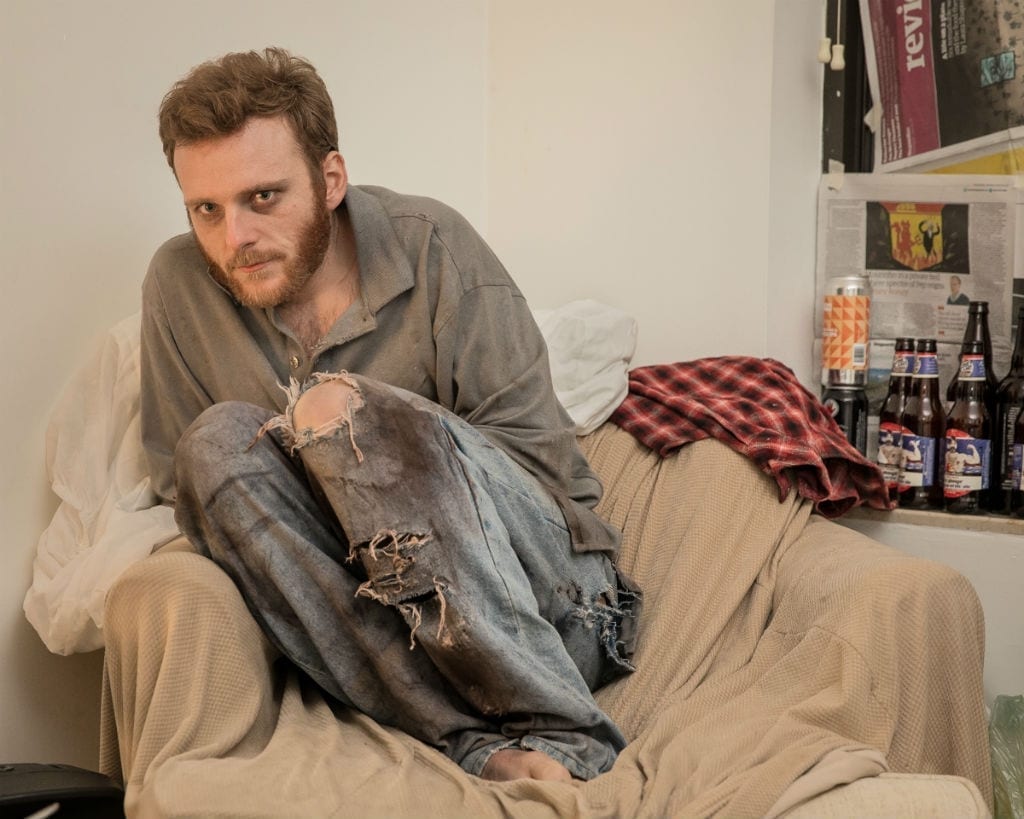
One of the most riotously fun offerings by this annual festival is its mashup with the New York Shakespeare Exchange. The NYSX, in partnership with the 1st Irish Theatre Festival, take their Shakes-beer pub crawl and put an Irish twist on it. A typical Shakesbeer pub crawl comes with four drink tickets, four Shakespearean play excerpts (from four different bodies of work), and four different bars. With an Irish twist, pub crawlers can gather to drink and watch as actors perform not only Shakespeare but George Bernard Shaw as well. Located at various bars on Stone Street, the pub crawl picked a perfect aesthetic for a celebration of Irish culture – between the old-world cobblestones and the Irish pubs, there could be nowhere better in the city to enjoy some classical theater. These performances are no mere recitations, however. Actors crawl across tabletops, dance through the crowds, and jump on top of the bar, all the while finding in the classical lines the original, plebian, laugh-out-loud resonance that Shakespeare intended to them to have. And the chosen excerpt from Bernard Shaw’s Misalliance was extraordinarily well-timed and even better received by an audience two or three beers deep: an homage to strong women who won’t bow to the “conventions” of men. “Men like conventions because men made them. I didn’t make them: I don’t like them: I won’t keep them,” Bernard Shaw’s leading lady declares. Cue the “huzzahs!”
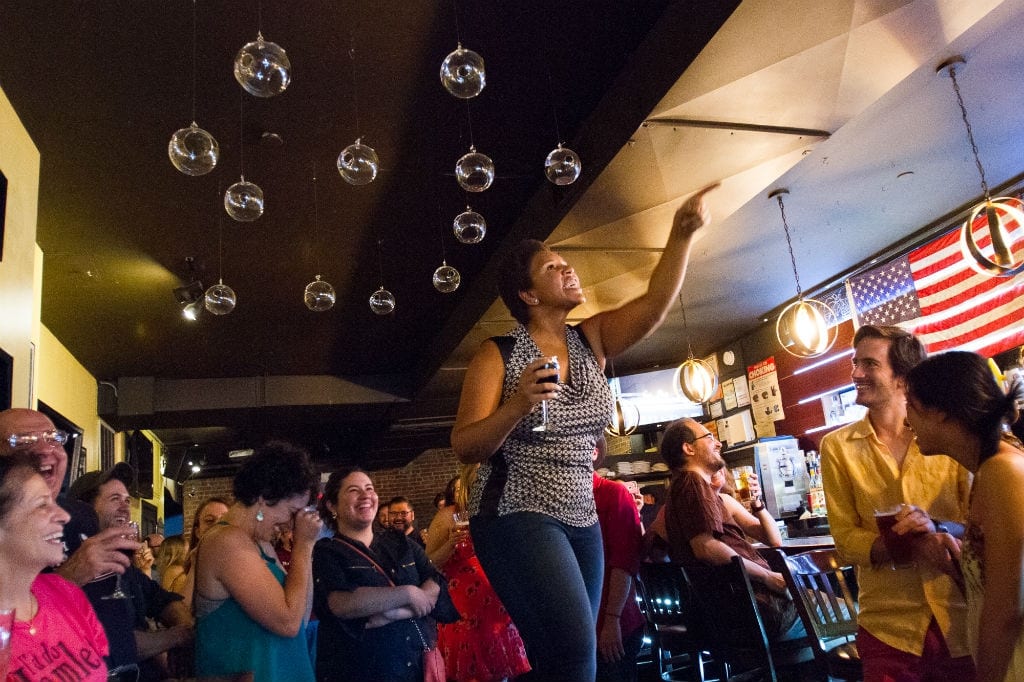
Photo MartinHarris
But perhaps the most stunning and intriguing (not to mention definitively Irish) production is The Only Jealousy of Emer. The play is one of a five-play cycle written by W.B. Yeats, one of Ireland’s most celebrated wordsmiths, chronicling the life and legends surrounding the Irish mythological hero Cú Chulainn – a Hercules-esque figure for the ancient Irish whose legend has crept into the modern-day. But even though Cú Chulainn might be the hero of this story, it is its titular character – Emer, Cú Chulainn’s queen – who dazzles. In Emer, played by Elissa Middleton, we find a powerful woman who stands tall and proud even as she struggles to keep the one scrap of happiness she has left. The flowing poetry and stunning imagery of Yeats’ Noh-inspired play set up residence at Torn Page, the cozy Victorian townhouse that was once the home of actors Geraldine Page and Rip Torn, and now partly serves as a performance space. The space can’t help but be intimate. In fact, the night that I attended, the audience was so packed that people were almost turned away. The space is interactive, and so we were pressed up against the walls and sometimes the actors themselves. The physical intimacy of the play was perhaps what made it so fun. The audience was even invited, from time to time, to read stanzas from the script. And yet the actors danced between us with the air of another world, convincing us of green pastures and foreign seas even while we stood shoulder to shoulder with strangers. There was something about such forced familiarity, combined with the lofty words of Yeats and the nostalgia of ancient mythology, that made the evening such a special one. And perhaps the Irish cream liqueur and cookies that were served beforehand didn’t hurt, either.
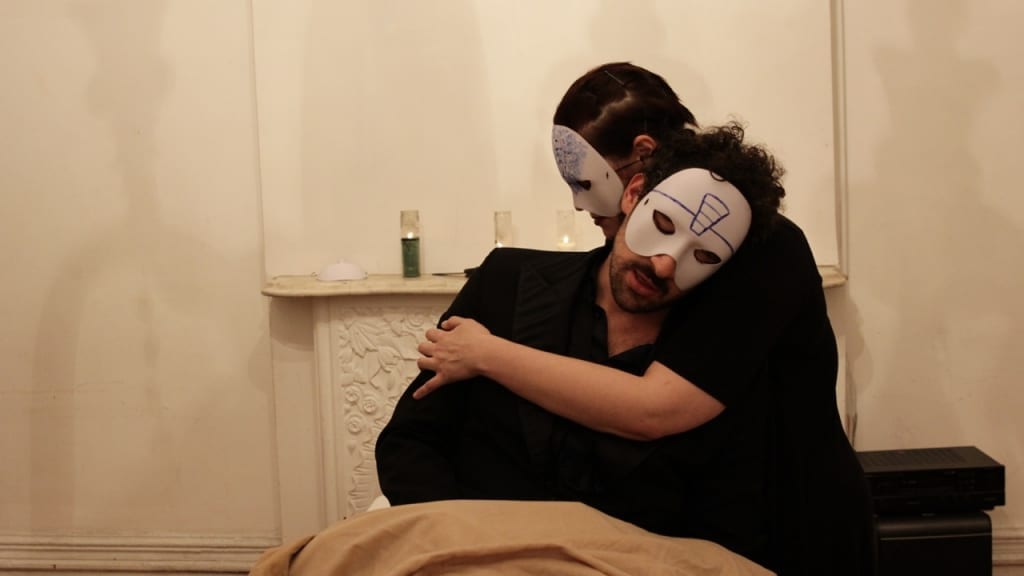
The festival is all this and more. Strong characters, and especially strong women seem to be the driving force behind the 10th anniversary of Origin’s 1st Irish Theatre Festival. They rage for all to hear, bucking the controlling trait of being “ladylike,” or they radiate silent power in their decisions and choices. Some are empowering, but others know that they don’t have to be in order to create a woman character – they simply have to be complex and real. In their tenth anniversary year, 1st Irish brings a selection of shows that are mysterious and majestic, or hopelessly twisted, or intense, or thought-provoking, or light-hearted, but most importantly of all, fun. It’s a triumphant celebration of roots and culture and an encouraging display of what the future holds. With productions for all ages or possible likes and dislikes, it’s hard not to find something that you’ll enjoy. I suggest grabbing a pint and rolling the dice because whatever you end up seeing will be a uniquely interesting 1st Irish experience.

